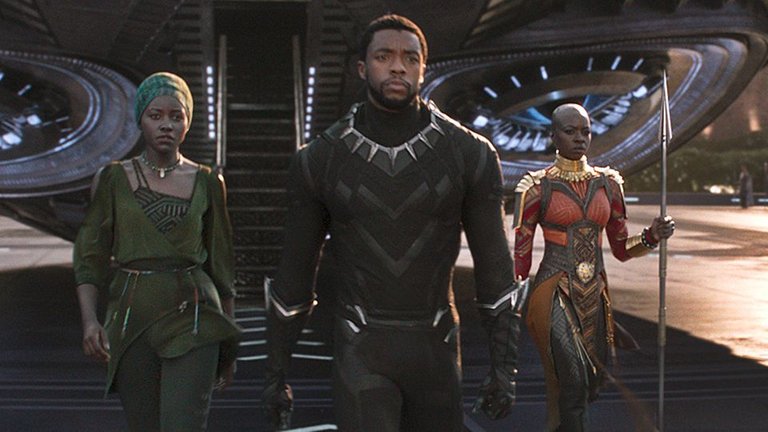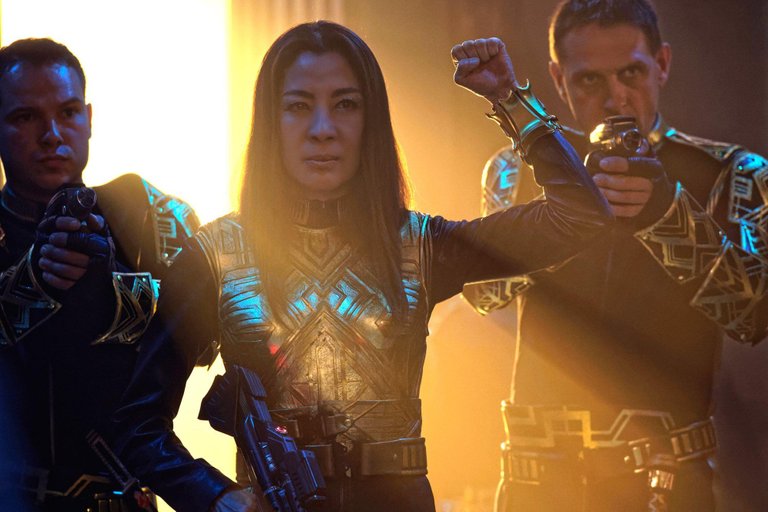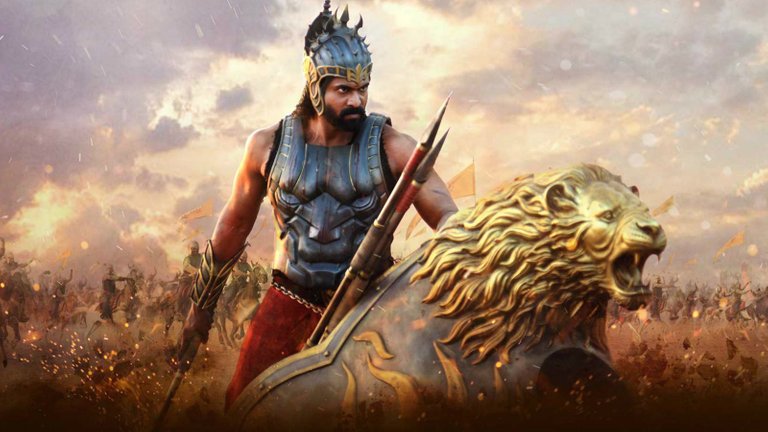
Still from Black Panther/Marvel
In an increasingly polarized and authoritarian political climate, can we afford to champion heroes of any kind without turning them into symbols of sovereign power? Our desire to project and see politicians and industrialists as superheroes or saviors could be dangerous in more ways than one. Films, graphic novels and stories in popular culture that choose not to critically examine or question the prevalent political or economic systems of their fictional worlds, whether democratic, feudal or monarchial, and their heroes' potential for the abuse of power, shouldn’t be celebrated as role models for our generation.
The rise of Donald Trump in America and Narendra Modi in India would have been impossible in a mature democracy if the media and advertising hadn’t played significant roles in manufacturing consent and influencing decision-making of a large world population looking for saviors and emancipators from the hard problems of the world: poverty, inequality, discrimination and injustice, lack of employment or access to affordable housing and healthcare, among others. In times of great suffering or crisis, the choice is often obvious: love over hate, peace over war, sanity not madness, and progress not ignorance. Why do we then elect pathological liars and monsters as our representatives and leaders? Where does that needy, self-destructive impulse to take refuge in our base instincts and worst habits come from?
Absolute Power

Still from Star Trek/CBS
In Star Trek: Discovery (2018), the alternative universe has an emperor—a cruel one—and a society which is as barbaric as it could be even with the best of available technology and resources. The federation presents a stark contrast—it’s a benevolent force. There are rules here that don’t change depending on one person’s character or temperament. Available resources and forms of government could be correlated, and determine how a civilization evolves on a planet; the hierarchies and structures of the society determine whether its people, resources and knowledge are free or not. The post-scarcity world of Star Trek is within our reach, but we won’t get there anytime soon because of the poor choices we are taught, influenced or forced to make from politics to religion.
What kind of society does Wakanda represent? Is Wakanda a technological marvel because of monarchy, or is it a flawed view perpetuated by the creators of Black Panther?

Still from Baahubali
Hollywood's Black Panther and Bollywood's Baahubali project a notion that an absolute monarch is a good thing: a king can be a strong leader, and also a good person. We know better—the worldly affairs of our species isn’t that simple. The infinite realm of possibilities, both good and bad, exist within us. Homo sapiens aren’t that predictable a creature. We are capable of compassion, cruelty and justice, often at the same time. What kind of society does Wakanda represent? Is Wakanda a technological marvel because of monarchy, or is it a flawed view perpetuated by the creators of Black Panther?
Biospheric Consciousness
Stories that entertain and remind us of the need to nurture and follow the better angels of our nature can’t be truly effective if we continue to base them on simple assumptions of ancient human civilizations. We need to develop a new shared worldview to help imagine a new future for our species on Earth—a collective biospheric consciousness, a planetary civilization.
Black Panther is easily one of the best films to come from the Marvel universe. And it's as perfect as the world it represents or comes from. If there’s one message that I'd love to take home from Black Panther, it’s this: The world could be one big tribe, yes, but good wishes alone won’t take us there. Neither will personal heroism and nationalism. The creators of Black Panther portray this realization through the film’s central conflict and battle scenes. The humanity's collective struggle against its worst impulses requires love, courage and sacrifice. If we really want to build the kind of world we want to live in, we need to develop new models for economic and political organization of Earth's resources and creative talents, and enable knowledge sharing and genuine collaboration among people on a level that the world hasn't seen before.